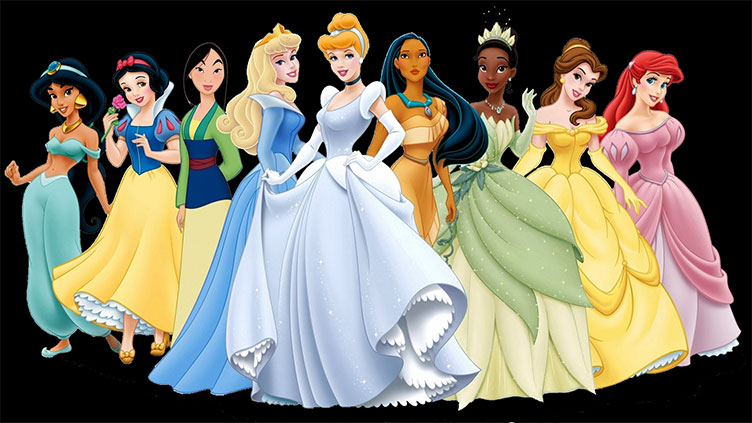Disney princesses with thin figures damaging to girls' self-esteem, study claims

Entertainment
Cinderella, Aurora are among characters that are harmful to self-esteem of young boys and girls.
(Web News) - Disney's blockbusters have captivated children for generations, with many dreaming to look 'as pretty as a princess' one day.
But scientists now say that Cinderella and Aurora are among countless characters that are more harmful to the self-esteem of young boys and girls.
New research, led by the University of California, has shed light on the connection between the body shape of a youngster's favourite princess and their confidence.
Aurora, Snow White and Cinderella were deemed to have a 'less positive' influence on a child's self-esteem based on their thinness.
In contrast, children who idolise Brave's Merida or Moana were far more likely to be confident, thanks to their more 'realistic' body types.
'Disney princesses are presented to children as aspirational characters,' the authors wrote.
'For example, Disney princesses are often depicted as extremely thin, and their thinness is often associated with their desirability (e.g., Snow White is referred to as the "fairest of them all" and Aurora is blessed with the "gift of beauty" in their respective films).
'Thus, Disney films with thin princesses may reinforce the social narrative that thinness is more socially desirable, or as other authors have written, goodness is equated with thinness.'
As part of their analysis, researchers examined a dataset of 61 Disney films, with a total of 112 characters ranked on their body size.
Generally, this saw princesses from Disney's older films categorised as 'thin', while more modern figures like Merida fell into the 'normal-sized' category.
A group of parents were then asked which princess their child most identified with, in addition to other questions on their youngster's perceived self-esteem.
Frozen's Princess Elsa was a clear winner among both boys and girls, with 76 and 94 respectively deeming her as their favourite.
Meanwhile, the 'realistically-sized' Moana came second, while ultrathin princesses like Elsa, Anna and Jasmine also featured in the top 10.
Overall, experts found that children were more likely to have a positive outlook on their self-esteem if their favourite princess was averagely sized.
But those with a thinner favourite princess had no significant link between the time spent 'playing pretend' as them and their esteem.
This was the case for both boys and girls, but previous research indicates that boys may even be influenced much more by Disney's princesses.
Psychologist, Catherine Hallissey, told MailOnline that characters such as this can influence long-held attitudes even if it goes unnoticed.
'Children and adults are influenced by everything in their environment so if children are playing with a certain type of toy, it will influence their thoughts and attitudes,' she said.
'If that toy is an idealised version of beauty, this will have an impact on the child's perception of beauty and, by extension, how they feel they measure up to this idealised version of beauty.
'So, if a child is playing with a toy that has a more realistic body type, the child is more likely to develop a more realistic view on body shape, size and proportions.'
As a result of the findings, authors believe that averagely-sized characters are most beneficial to children - acting as a 'protective context' to their esteem.
They wrote: 'Specifically, depictions of princesses’ body size seem to be particularly impactful for young children, although our analyses suggest that perhaps thin princesses are not necessarily harmful for young children.
'Instead, our findings suggest that princesses with average body sizes create a protective context for children’s body esteem, especially as they engage with these princesses through pretend play.
'These findings present greater nuance to our understanding of the effect of media engagement on children’s development of body esteem and gender stereotypes, allowing us to better understand how Disney princesses specifically may play a role in children’s lives and growth.'

